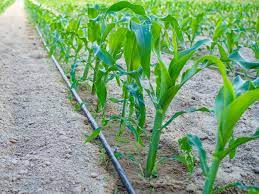The Federal Government of Nigeria in partnership with the Food and Agriculture Organization (FAO) has revealed its plan to promote food security and sustainable water management, through drip irrigation system, to produce more crops per drop of water.
The Director, Irrigation, and Drainage, Federal Ministry of Water Resources, Engr Esther Oluniyi, disclosed the plan during an ‘Inception Workshop On FAO Technical Assistance for the Promotion of Pilot Drip Irrigation System’ located at Gari Irrigation Project under Hadejia Jama’are River Basin Development Authority, held in Abuja.
FAO was founded on 16 October 1945, as a specialized agency of the United Nations that leads international efforts to defeat hunger and improve food security. Its Latin motto, fiat panis, translates to “let there be bread”.
FAO Trains Farmers’ Field School Facilitators in Northeast
Oluniyi hinted that the program was developed as a pilot initiative to compare low energy drip based irrigated system side by side gravity canal, flood based irrigated system, so as to come up with some irrigation parameters such as; volume of water use; quantity of drops produced; cost of power, cost of labour, and others.
She emphasized that it has become imperative to compare the drip irrigation pilot initiative other irrigation systems, adding that FAO has expressed support through Technical Cooperation Program, TCP, to promote a 20-25 ha pilot drip irrigation system, which started with identification of suitable land/site for the project.
FAO: Progress on Eradication of Sheep and Goat Disease
In his remark, the FAO Country Representative to Nigeria and ECOWAS Commission, Fred Kafeero, disclosed that the project is coming at an opportune time when countries including Nigeria are faced with devastating effects of climate change and associated challenges.
“For us in FAO, promotion of drip irrigation in Nigeria will provide an enabling and attractive environment that will bring more youth, peasant farmers, and other vulnerable groups to engage in the production of high value crops through the utilization of cheaper and simpler irrigation technologies that can be operated and maintained with very minimum training.



